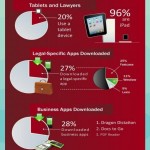Reducing Technology Costs: 4 Tips for Small Businesses
If you are a small business owner, you most definitely know that technology can be your best friend. Embracing technology can help you work efficiently and find more customers, but most importantly, it can help you save a lot of money.
This doesn’t mean that you invest all you can in technology; you certainly don’t want your company to go bust! It’s easy to go overboard when investing in technology but you need to put some thought into this if you’re looking to cut costs.
Here are some tips to help you cut technology-related costs.

Audit Your Technology Inventory
To be able to cut costs, you need to first know where you’re spending extra money. The technology infrastructure of your company is bound to have several layers and you need to be familiar with all of them to be able to decide where you can go economical.
System redundancies are common with most companies. You could either be paying operating system license fees that overlap or spending twice the money to get jobs done. Clear clutter and you’ll certainly be able to cut costs.
You can also consider switching to the BYOD or ‘bring your own device’ trend and have employees get their preferred devices to work. You won’t have to spend on systems this way, but do make sure that all devices are installed with the required applications.
Think before Spending
Thinking before spending every dime can help you save a lot of money as it will give you the opportunity to realize if you truly need to make a particular purchase. For example, if you want to get a fax machine, ask yourself if you really need to. Consider the costs involved- landline costs, and paper and printer ink costs. If sending e-mails will suffice, don’t invest in a fax machine. Moreover, you can always use fax services if you need to send a fax to someone.
When it comes to security solutions, don’t buy everything on the market to keep your files safe. Online web forums will give you an idea of what you can use to keep your data and office safe.
Buy from the Best
At times, buying from the best can be more practical than buying the best. This only means buying whatever you need from suppliers or vendors that offer the best deals. Also, if you’re on a budget, you needn’t buy brand new equipment. You can get good equipment at reasonable prices if you choose to go for second-hand items.
Refurbished electronics like laptops, computers and printers will be just like new and you can get them for a fraction of the price of brand new electronics. What’s more, you can always sell these items later if need be!
Just be sure to purchase from reputable dealers; you don’t want to buy items that need constant repairs. And if you’ve been buying items from a particular vendor for quite some time, don’t pass up the opportunity to ask for a discount or bargain. Vendors want to keep their regular clients too, so it might be a good time to re-negotiate your contract.
Look for Low-Cost Alternatives
If you really need a particular technology but don’t have adequate funds, you needn’t be upset. You only need to look for smart alternatives and you’ll have the technology you need without spending a fortune.
Don’t know how to proceed? Here are some examples.
- If you and your employees need to be connected to each other all the time, you don’t necessarily have to go for a landline service. Have your employees use their personal cell phones and reimburse their bills or a part of their bills each month. You could also consider virtual phone lines or VoIP options like Skype, Yahoo Voice, or Google Voice to keep everyone well-connected.
- Using open-source software is a great alternative to buying licensed software. Open-source software won’t require a financial investment and most open-source software is flexible enough to meet your business needs.
- Switching your network to the cloud would be the best thing to do to consolidate your information and reduce costs. With cloud computing, you will have the freedom of being able to access files, logistics, communications, and software from anywhere. It also improves client interactions and helps boost collaboration without adding continual software upgradation costs to your bills. Cloud computing has many unexpected advantages too!
- Another great way to save money is by making use of online invoicing services. If you own a small business, you don’t need to invest in an extensive accounting suite in order to manage your books. Depending on your needs, simply go for a streamlined online invoicing service to manage your billing process.
Conclusion
It is easy for small businesses to get overwhelmed when it comes to planning and sticking to a budget. But if you want to see your business to succeed and grow in every way, you’ll need to ensure that things are going according to plan.
One can easily assume that making use of technology in whichever way possible will benefit the company. While this may be true, small businesses may not benefit financially at all times by adopting the best technology.
So don’t go with the flow and make purchases blindly; you now know what you need to do to stay within your budget when it comes to spending on technology! With the tips mentioned here, you’re sure to be fine.
Author Bio:
Jason Geater leads the team at Solvusoft. They offer consumer PC optimization products that help with computer errors, edit file types, and protect online privacy.















